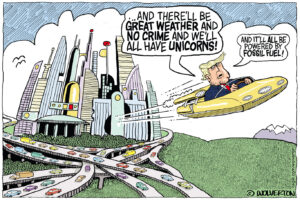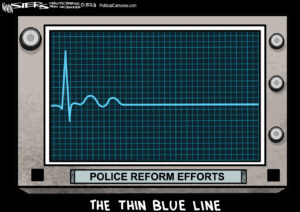When Did the Victim Become the Murderer?
Why do you suppose so many people were so quick to blame Sean Taylor for his own murder? Relax, that's a rhetorical question.WASHINGTON — Why do you suppose so many people were so quick to blame Sean Taylor for his own murder?
Relax, that’s a rhetorical question. There’s no need for self-exculpatory huffing and puffing, no need to point out that the verdict of suicide-by-bad-attitude — pronounced so often this week, and so coldly — was usually couched in broad hints or softened by the nebulous fog of the conditional mood. Everyone knew what was really being said, and everyone knew why.
Taylor instantly became not a person but a character, one whose purpose was to advance a narrative about young black men and their manifold failings. Taylor, a gifted defensive back for the Washington Redskins, had been in trouble with the law. Despite the millions he earned playing football, he never managed to escape the quicksand lure of the mean streets — parasitic friends, envious haters, a culture of casual violence. It was his decision to swim in this cesspool of dysfunction, the narrative said. And, like so many other young black men who have made the same wrong choice, he paid for it with his life.
At least that was the story before Wednesday, when Robert Parker, director of the Miami-Dade police, announced that investigators had “no reason” to believe Taylor was targeted by his killer or even knew the man who shot him. Police were operating on the theory that the crime was a botched attempt at burglary, Parker said, essentially a random act.
I realize that Parker may eventually be proved wrong. But what fascinates me is how eager people were to believe the worst about Taylor — how ready to stuff a young man’s death into a box labeled “pathology” and call it a day — in the absence of supporting factual evidence. Apparently, “innocent until proved guilty” doesn’t apply to young black men even when they’re the victims of violent crime.
The few facts we have, in fact, tell a story that’s very different from the chosen narrative. Sean Taylor is hardly a typical product of those fabled “mean streets” — he grew up with his father, a suburban police chief, in a middle-class neighborhood. He did spend weekends with his mother in a tougher area, though, and acquired some sketchy friends. But at the same time he was attending an exclusive private high school, where he met his girlfriend, Jackie Garcia, a niece of the actor Andy Garcia.
Taylor’s home, with its expansive yard and its big swimming pool, is in an upper-middle-class suburb. There’s nothing remotely “mean” about the street.
Jackie Garcia hid under the covers with the couple’s 18-month-old daughter early Monday while Taylor faced the intruder who shot and mortally wounded him. Andy Garcia released a statement Wednesday praising Taylor for his “heroic” sacrifice that saved Jackie’s life.
Much has been made of the fact that Taylor grabbed a machete from under his bed before confronting the intruder. In New York or St. Louis or Seattle, if you saw a machete you’d think: deadly weapon. But I spent years covering Latin America for The Washington Post, so when I see a machete in a place like Miami I’m more likely to think: garden implement. Tropical vegetation is a lot easier to trim with a machete than with hedge clippers, and Taylor’s father said Sean used the blade in his yard. No, machetes are not usually kept under the bed. But if my house had been broken into recently — as Taylor’s was, barely a week before his slaying — I might have wanted the thing a little closer to hand.
My purpose here isn’t to make a hero out of Sean Taylor, though he may well have died a hero’s death. He made some serious mistakes in his life, and he didn’t always have the proper regard for authority and discipline. Nor am I trying to sell the “he was finally turning his life around” narrative, as if taking a few GPS readings were enough to show anyone the way to responsible manhood.
Life isn’t so linear — and people aren’t so one-dimensional.
The next time you encounter a young black man like Sean Taylor — a man who can be headstrong and rebellious, who listens to rap music and sometimes wears his hair in a wild-man ‘fro that’s meant to intimidate, who scowls when we want him to smile and makes a bad mistake or two and doesn’t choose the friends we would want him to choose — know that there is possibility within him, and contradiction, and the capacity for love. Know that he’s more than a plot device.
Eugene Robinson’s e-mail address is eugenerobinson(at)washpost.com.
© 2007, Washington Post Writers Group
Your support matters…Independent journalism is under threat and overshadowed by heavily funded mainstream media.
You can help level the playing field. Become a member.
Your tax-deductible contribution keeps us digging beneath the headlines to give you thought-provoking, investigative reporting and analysis that unearths what's really happening- without compromise.
Give today to support our courageous, independent journalists.









You need to be a supporter to comment.
There are currently no responses to this article.
Be the first to respond.